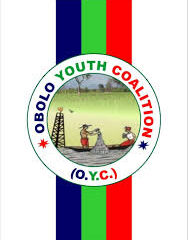Agriculture
Why We Introduced Special Fertiliser For Cocoa Farming – Ministry
The South-West Regional Director in the Federal Ministry of Agriculture and Rural Development, Dr Julius Odeyemi, says the gradual depletion of the soil was responsible for government’s introduction of special fertiliser for cocoa farming.
Odeyemi told The Tide source recently in Ibadan that government was compelled to introduce five types of special fertiliser for cocoa farming.
He also said that the varieties were distributed “to meet the government’s target of incremental annual cocoa production under the Agricultural Transformation Agenda (ATA).”
According to him, the target production is 500,000 tons by 2015 as compared to the current 250,000 tonns annually.
The director explained that government planned to increase the output to one million tonns by 2020.
“Such big ambition cannot be achieved with the old variety of fertiliser and cocoa seedlings being used before now,’’ Odeyemi said.
He explained that tree crops like cocoa could live for more than 40 years, adding that their nutrients were being depleted every year due to gradual soil deterioration.
“Ordinarily, our farmers do not like using fertiliser for planting cocoa but we introduced it to boost production so that the target of cocoa transformation agenda can be met.
“The soil on which these trees grow also need nutrients; as such the special type of fertiliser will enrich the soil and elongate the life span, quality and output of the cocoa trees,’’ the director said.
He said that 3.6 million pods of early maturing cocoa seedlings and 200 satchets of fungicides were given to farmers nationwide.
Odeyemi said that while the old varieties of cocoa seedlings used by Nigerian farmers mature between four and five years, the new varieties mature in two and a half years.
“The new varieties are also capable of yielding 1.2 tonns per hectare unlike the old types that yield only 0.35 tonns per hectare,’’ he said
Agriculture
FG, Ogun Distribute Inputs To 2,400 Farmers
Federal Government and the Ogun State Government, on Wednesday, distributed farm inputs to farmers as part of effort to address food security challenge.
The State Director, Federal Ministry of Agriculture and Food Security, Dr. Toyin Ayo-Ajayi, during the flag-off ceremony of Inputs Redemption Under The National Agricultural Growth Scheme-Agro Pocket (NAGS-AP), in Ogun State, disclosed that beneficiaries of the gesture were primarily rice, maize and cassava farmers across the State.
Ayo-Ajayi commended the Ogun State Government for partnering with the government at the centre for the effort in supporting farmers with inputs that would bring about yieldings for local consumption and likely exportation.
She noted that government is supporting rice, cassava and maize farmers with inputs worth N212,000; N189,000 and N186,000 respectively.
The Permanent Secretary in the State Ministry of Agriculture, Mrs Kehinde Jokotoye, who represented the Commissioner in the Ministry, Bolu Owotomo, stated that traditional farmers are critical in food production, hence the need to encourage and support them with inputs that would bring about desired results during harvesting.
Owotomo said: “Let us make good use of this opportunity, so that the success of this phase will make farmers benefit more from the state and federal governments of Nigeria.”
Earlier, State Coordinator, Federal Ministry of Agriculture and Food Security, Dr. Oluwatoyin Ayo-Ajayi, appreciated the present administration for partnering with the federal government for the initiative, adding that the programme is designed to support farmers at the grassroots level in cassava, rice and maize with inputs such as, seeds, pesticides, herbicides and fertilizers, to boost their production and enhance their livelihood.
Agriculture
Niger Allocates 10,000 Hectares For Smallholder Farmers
The Niger State Government has mapped out 10,000 hectares of farmland in Gbapo Community of Katcha Local Government Area of the State for smallholder farmers to benefit from the state government’s agricultural intervention programme.
Two thousand out of the 10,000 holders of the farmlands have already received inputs.
At a flag-off ceremony in Yinti Village, the facilitator of the programme, Shinkafan Nupe, Malam Idris Usman Makanta, assured the farmers of increased distributions to the mapped-out ten thousand (10,000) farmlands if farmers respond positively.
He explained that the commencement of the two thousand is to measure the positive response of farmers before obtaining full-scale support.
Malam Makanta stated that this initiative aligns with the farmers’ initial commitment through Niger Foods, whose mission is primarily geared towards establishing efficient and profitable agricultural businesses to support the present administration of Governor Mohammed Umaru Bago’s quest to boost agricultural productivity in the state.
He also commended Niger Foods for their steadfastness and resilience in the effective implementation of the input financing scheme.
Makanta reiterated the commitment of the State Governor in making judicious use of the arable land in the state.
Shinkafan Nupe, therefore, urged the farmers to support the Governor by using the inputs wisely so that the dream can be actualised.
Agriculture
GO-CARES: Gombe Empowers 573,429 Farmers, Entrepreneurs
The Gombe State Government has empowered a total of 573,429 farmers and entrepreneurs under the 4th phase of the GO-CARES programme.
The programme was officially flagged off by Governor Inuwa Yahaya in another major step towards alleviating poverty and supporting the state’s vulnerable populations.
The Governor, while inaugurating the disbursement in Akko Community of Akko Local Government Area, restated his administration’s commitment to the welfare of vulnerable citizens in the state.
He was represented by the Commissioner for Budget and Economic Planning, Salihu Baba Alkali, who is also the Chairman of the Steering Committee on GO- CARES implementation.
“The 4th phase of GO-CARES will directly and indirectly impact a total of 573,429 citizens across the state. Of these, 152,429 individuals will benefit directly through cash transfers, livelihood grants, agricultural inputs, and operational grants to small businesses”, he stated.
The Governor added that, “421,000 people will be indirect beneficiaries through infrastructural projects such as classroom blocks, healthcare facilities, WASH services, and rural infrastructure projects like culverts and drainages”.
Yahaya, reaffirmed his commitment to ensuring that the state’s most vulnerable citizens are not left behind in the state’s development.
According to him, “Earlier this year, on June 25, 2024, we flagged off the distribution of improved seedlings, fertilizers, and herbicides to less privileged farmers in Malam Sidi, Kwami Local Government Area, signaling the commencement of the 4th phase implementation of GO-CARES under Result Area 2”.
The Governor reiterated that these initiatives have had a significant impact on the livelihoods of beneficiaries and the overall agricultural sector.
He explained that, “Today’s ceremony marked the simultaneous launch of activities under all three GO-CARES Result Areas for the 4th phase. These areas include: State Cash Transfer Grants: 2,500 direct beneficiaries; Labour Intensive Public Works: 2,700 direct beneficiaries; Livelihood Grants: 10,000 direct beneficiaries; and Basic Services: 405,000 indirect beneficiaries”.
-

 Politics3 days ago
Politics3 days agoProposed States Creation: Youth Leader Lauds Nass Over Obolo State Inclusion
-

 News2 days ago
News2 days agoTreasury Bills Attract N3.22trn From Investors
-

 Sports3 days ago
Sports3 days agoNPFL: Remo Narrowly Beat Pillars 2-1 To Maintain Lead
-

 News3 days ago
News3 days agoAfDB Dissatisfied With $210m Nigeria Agro-Industrial Zones Project
-

 Niger Delta2 days ago
Niger Delta2 days agoDiri Unhappy Over Poor State Of Public Schools
-

 Editorial3 days ago
Editorial3 days agoNew Federal Varsity In Ogoni
-

 News2 days ago
News2 days agoN70,000 Minimum Wage States’ Salaries Rise By 90% To N3.8trn
-

 Oil & Energy3 days ago
Oil & Energy3 days agoWAPCo Commences Four-Week Pipeline Maintenance

